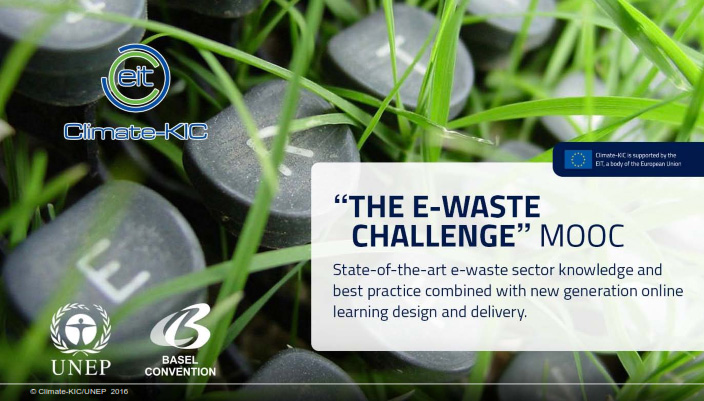Publications
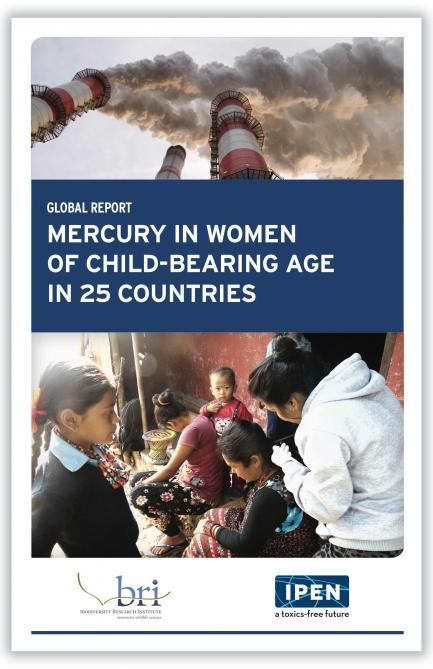
Mercury in Women of Child-bearing Age in 25 Countries
September 2017 | Lee Bell (Lead author)
Contributing authors: David Evers, Sarah Johnson, Kevin Regan, Joe DiGangi, Jennifer Federico, Jan Samanek
Biodiversity Research Institute (BRI), Maine, USA; IPEN, Göteborg, Sweden; Arnika Association, Prague, Czech Republic
Mercury is a potent neurotoxin, especially to the developing brain, and can affect the developing fetus months after the mother’s exposure. The harmful effects that can be passed from the mother to the fetus when the mother’s mercury levels exceed 1 ppm include neurological impairment, IQ loss, and damage to the kidneys
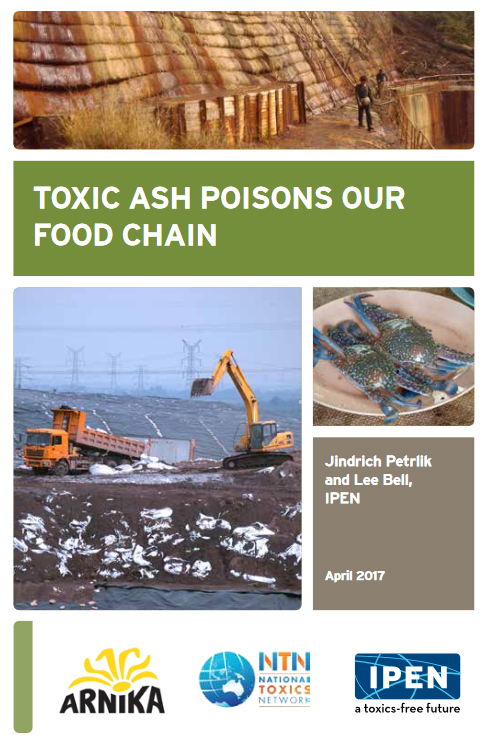
Toxic Ash Poisons Our Food Chain
Arnika, National Toxics Network and IPEN, Toxic Ash Poisons Our Food Chain, April 2017
This extensive new report was prepared to address a major source of POPs contamination of the environment that is often overlooked, underestimated or incorrectly classified in risk assessments, exposure scenarios and regulatory controls on waste. Ash and other residues from waste incineration contain dioxins, furans (PCDD/Fs) and a range of other highly toxic POPs at levels which are a threat to human health and the environment. Current management practices and regulatory threshold levels for POPs that contaminate incinerator residues are not preventing releases of POPs into agricultural settings, the food chain and the broader environment.
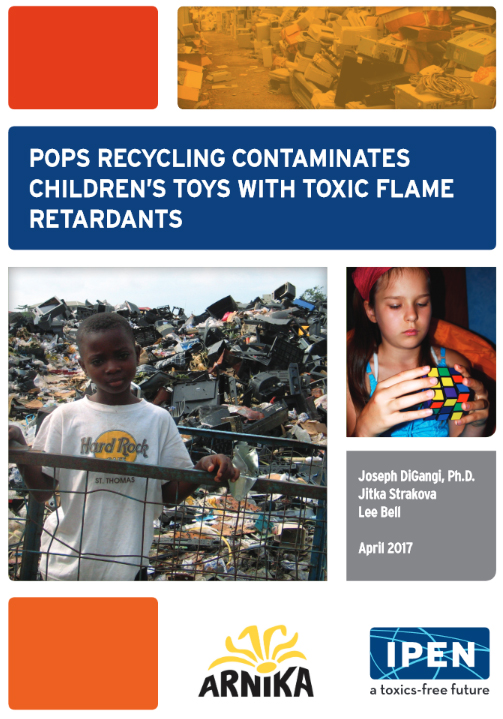
Pops Recycling Contaminates Children's Toys with Toxic Flame Retardants
IPEN & Arnika, April 2017
Recycling plastics containing toxic flame retardant chemicals found in electronic waste results in contamination of new plastic children’s toys and related products. The substances include octabromodiphenyl ether (OctaBDE), deca-bromodiphenyl ether (DecaBDE), and hexabromocyclododecane (HBCD). This study found all three toxic chemicals in recycled plastic children’s products. In a survey of products from 26 countries, 90% of the samples contained OctaBDE or DecaBDE. Nearly half of them (43%) contained HBCD. Recycling materials that contain persistent organic pollutants (POPs) and other toxic substances contaminates new products, continues human and environmental exposure, and undermines the credibility of recycling.
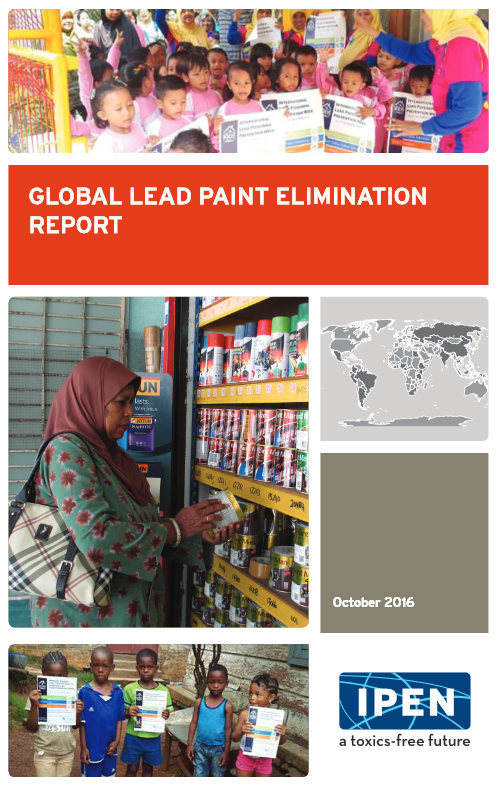
Global Lead Paint Elimination Report
IPEN, October 2016
Lead is a toxic metal that causes adverse effects on both human health and the environment. While lead exposure is harmful to adults, lead exposure harms children at much lower levels, and the health effects are generally irreversible and can have a lifelong impact. The younger the child, the more harmful lead can be, and children with nutritional deficiencies absorb ingested lead at an increased rate. The human fetus is the most vulnerable, and a pregnant woman can transfer lead that has accumulated in her body to her developing child. Lead is also transferred through breast milk when lead is present in a nursing mother.
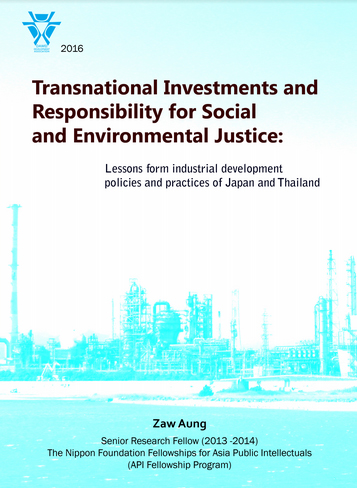
Transnational Investments and Responsibility for Social and Environmental Justice: Lessons from the Industrial Development Policies and Practices of Japan and Thailand
Author: Zaw Aung, October 2016
Transnational investments shifted increasingly from industrialized to industrializing countries when economic globalization accelerated in the late twentieth century. Industrialization has been the only viable choice for developing countries to catch up to the industrialized countries and serves as a dividing line between the terms "developed" and "developing" when demonstrating a nation’s economic status. As the world’s developing countries mostly exist in Asia and Africa, Japan demonstrated its extraordinary ability to gain the status of the first developed nation in Asia after World War II.
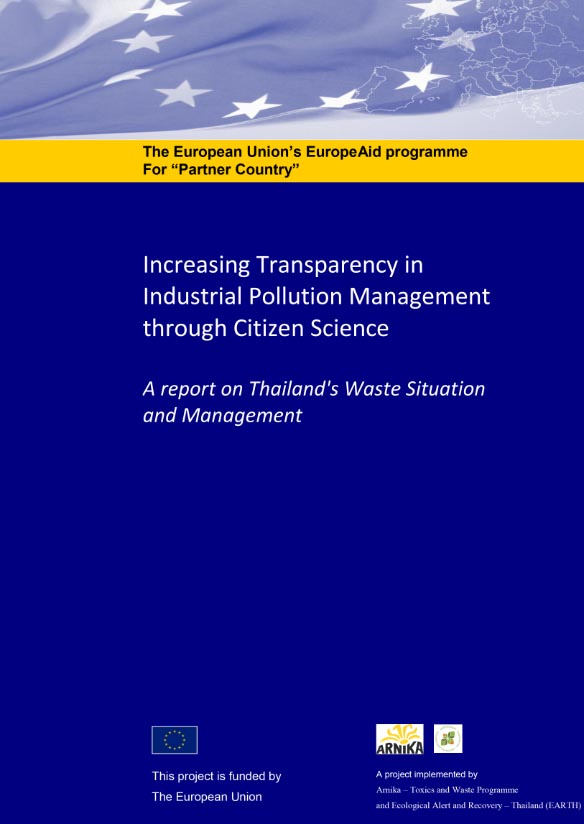
Increasing Transparency Industrial Pollution Management through Citizen Science: A Report on Thailand’s Waste Situation and Management
Arnika and Ecological Alert and Recovery – Thailand (EARTH), October 2016
Thailand and a National Path: Towards Sustainable Waste Management
The Thai government has announced that it will resolve municipal waste problems as part of its top national agenda by targeting the disposal of over 30 million tonnes of unmanaged waste, and setting up proper ways to dispose both hazardous and municipal solid wastes in 2021.
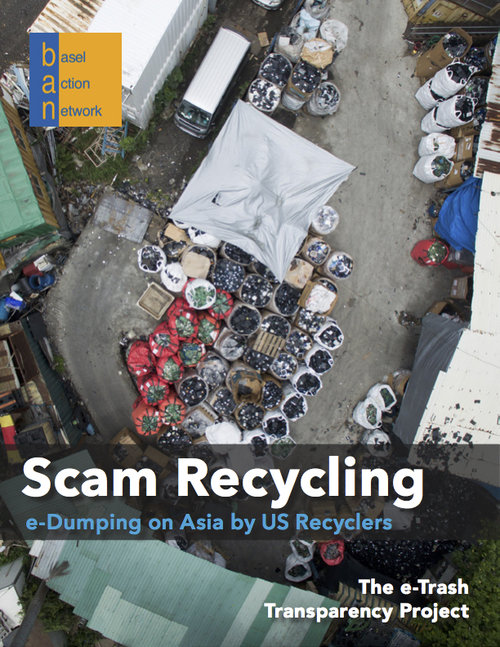
Scam Recycling: e-Dumping on Asia by US Recyclers
Basel Action Network (BAN), September 2016
Utilizing high-tech methods to track high-tech wastes, the environmental watchdog, Basel Action Network (BAN) as part of their e-Trash Transparency Project, funded by the Body Shop Foundation, planted GPS trackers into 205 old printers and monitors and then delivered them to charities and recyclers. The new report, entitled Scam Recycling: e-Dumping on Asia by US Recyclers, revealed that of those that were handed over to American electronics recyclers, 40 percent did not get recycled in the US as expected by customers, but were instead exported to highly-polluting and unsafe operations in developing countries -- mostly in Asia.
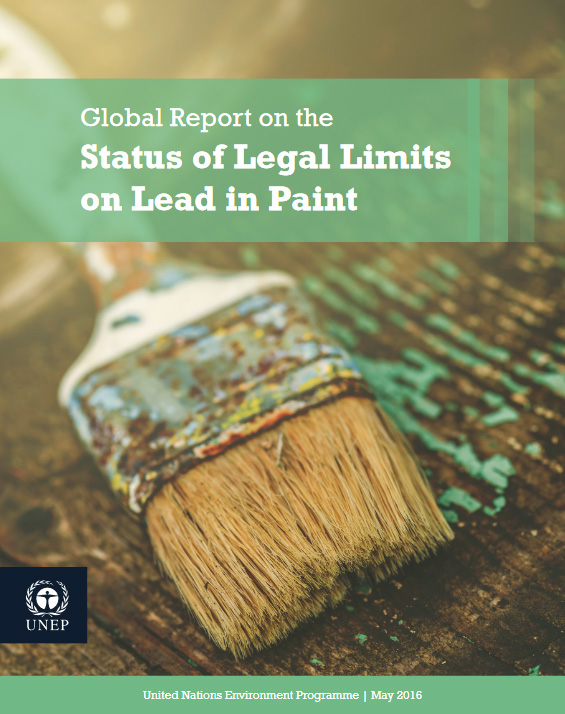
Global Report on the Status of Legal Limits on Lead in Paint
United Nations Environment Programme | May 2016
This report provides a global overview on the progress of countries in passing laws and regulations that limit the manufacture, import, export, sale and use of lead paints. It also illustrates a range of legal approaches that attempt to limit the use of lead-containing paint. In so doing, it becomes a valuable reference for countries seeking to establish their own laws and regulations on lead in paint.
A global target has been set for all countries to have lead paint controls by 2020. According to this report, only 36 per cent of countries have legally binding limits on lead paint. This suggests a significant gap still needs to be filled to achieve the target on time.
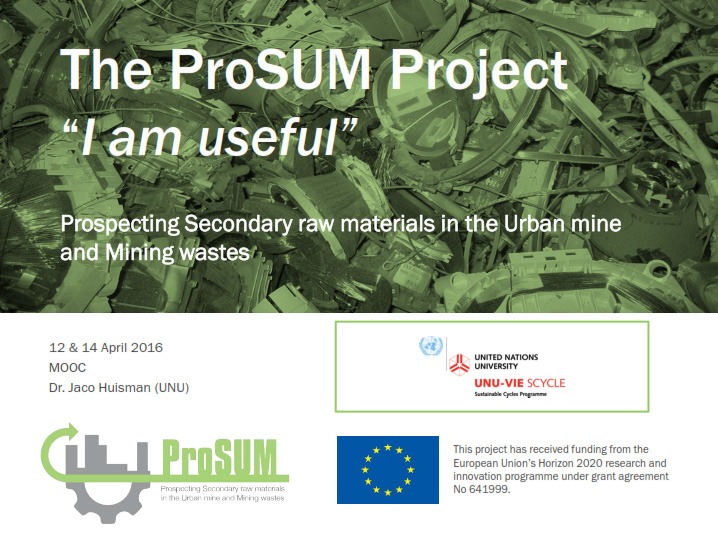
The ProSUM Project “I am useful” : Prospecting Secondary raw materials in the Urban mine and Mining wastes
Presentation by Dr. Jaco Huisman, United Nations University
April 2016

